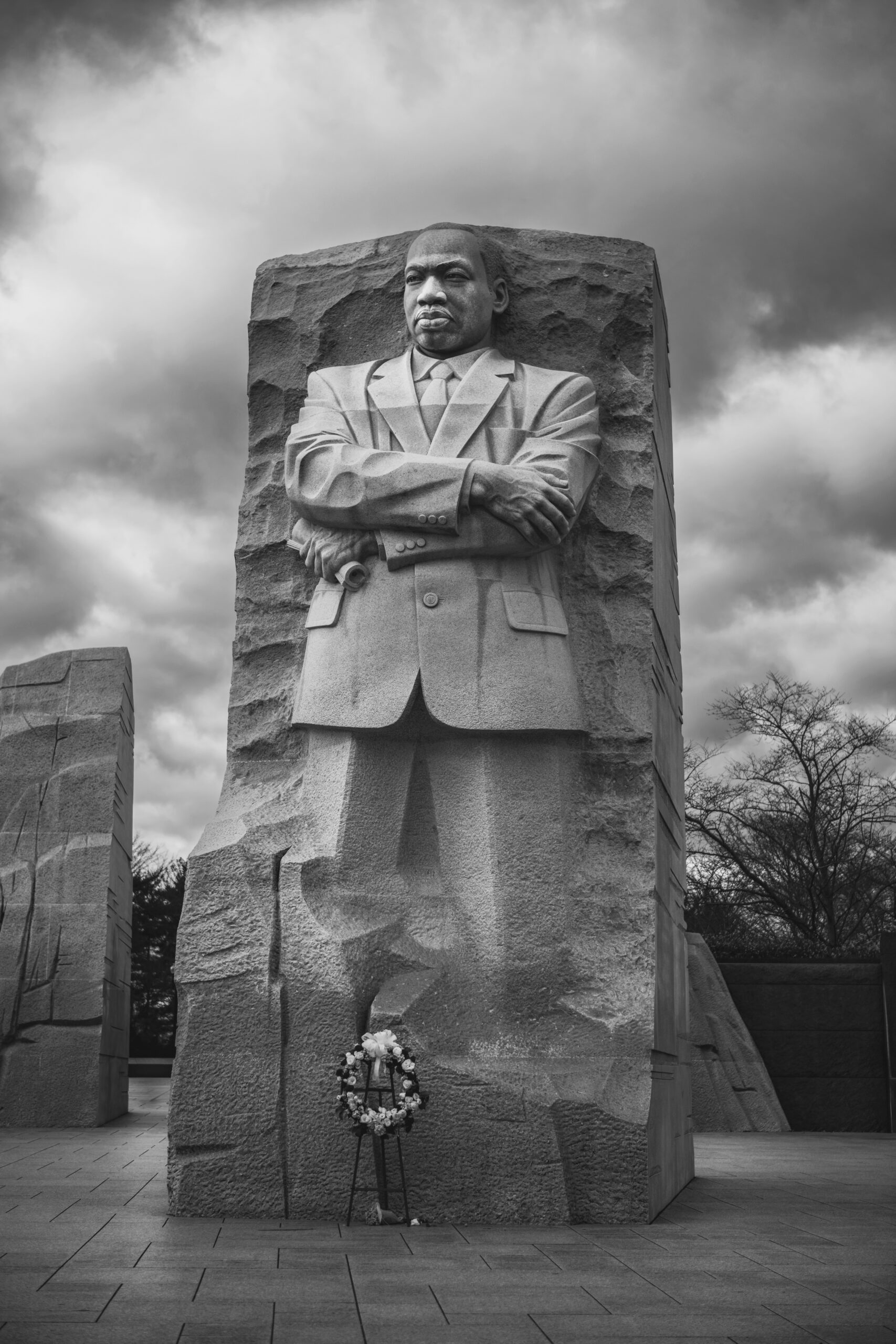Introduction
Dorothy Miles emerged as a formidable figure in the fight for equality and social change, significantly shaping the landscape of civil rights activism in the 20th century. Born in 1923 in a small town in New Jersey, her early life was marked by the societal constraints of the era, particularly concerning race and gender. Growing up as an African American woman, she experienced firsthand the challenges imposed by systemic inequalities and discrimination. These formative experiences motivated her to challenge injustices and advocate for social reform.
Throughout her youth, Miles was deeply influenced by the cultural and political movements of the time, particularly the Harlem Renaissance and various labor movements. The sense of community and collective action cultivated during these periods inspired her to pursue education actively, leading her to earn a scholarship to a prestigious university. This opportunity expanded her worldview and solidified her commitment to fight for marginalized communities.
AD
As she navigated her educational journey and early professional life, Miles became increasingly involved in activism, taking part in several demonstrations for civil rights and social justice. Her experiences working alongside prominent figures in the movement provided her with valuable insights into the systemic nature of oppression. This exposure equipped her with the tools necessary for effective advocacy, enabling her to articulate the needs and aspirations of those often silenced.
In her lifetime, Dorothy Miles would come to be recognized not only for her steadfast commitment to equality but also for her ability to galvanize others into action. Her story is not merely one of personal achievement but rather a reflection of the broader struggle for social change that she so poignantly embodied. By examining her early life and the context of her activism, we can appreciate her profound impact and significance in the ongoing quest for justice.
Early Involvement in Social Justice
Dorothy Miles’ journey into the realm of social justice began at a young age, fueled by the injustices she observed within her community. Growing up in the throes of racial segregation, she became acutely aware of the disparities that existed between different social and economic groups. This early awareness laid the foundation for her lifelong commitment to activism. Her initial foray into activism was sparked by the civil rights movement, as she witnessed both the struggle and resilience of those demanding equality. This period marked a pivotal point in her life, where she realized her voice could contribute to the collective cry for change.
One of her early endeavors included organizing community gatherings to discuss the importance of voting rights. She understood that participation in the democratic process was essential for achieving racial equity and addressing gender disparities. Her efforts were not confined to discussions; she actively campaigned for local candidates who advocated for social justice reforms, thus engaging her community in a meaningful dialogue about their rights and responsibilities.
Throughout the 1960s, Miles became increasingly involved in various social movements, including women’s rights and labor rights. She recognized that the fight for equality encompassed a broader spectrum of issues, including economic injustices that disproportionately affected marginalized groups. By aligning with other activists, she amplified the message that social change required cross-sectional support and collaboration. Each key event she participated in served as a catalyst for her growing commitment, demonstrating her understanding that social justice is intertwined with the fight against all forms of oppression.
Key Achievements and Contributions
Dorothy Miles played a pivotal role in the advancement of civil rights and social change throughout her life. As an advocate for equality, she not only challenged systemic racism but also inspired numerous initiatives that aimed to address social injustices. One of her most significant achievements was her involvement in the establishment of community support programs tailored for marginalized groups. These programs provided essential resources such as legal assistance, educational workshops, and mental health services, empowering individuals with the tools necessary to navigate societal challenges.
In addition to her grassroots efforts, Dorothy Miles was instrumental in orchestrating several awareness campaigns that addressed pressing societal issues. These campaigns often utilized various forms of media to disseminate information and engage the public in conversations about equality. Her ability to communicate complex ideas through accessible formats allowed her to reach a wider audience, ultimately amplifying her message of social justice. She also collaborated with other activists to create networks of support, fostering a sense of community among those advocating for change.
Perhaps one of her most lasting legacies is her commitment to education as a vehicle for empowerment. Dorothy Miles established scholarship programs aimed specifically at underrepresented students, ensuring that future generations would have access to quality education and opportunities to succeed. By investing in the youth, she cultivated a sense of responsibility towards social change, encouraging them to become advocates within their own communities.
In recognition of her impactful work, various organizations and institutions have honored Miles with awards and accolades, celebrating her unwavering dedication to fighting for equality. The tangible results of her initiatives have created ripples of change, further solidifying her position as a key figure in the ongoing struggle for social justice. Dorothy Miles’ contributions have not only shaped policies and programs but have also inspired countless individuals to continue her mission.
Challenges Faced in Her Activism
Dorothy Miles dedicated her life to the fight for equality and social change, a journey that was not without its significant challenges. Throughout her activism, she encountered various forms of societal resistance that threatened to undermine her efforts. Many communities were often hesitant to embrace her progressive ideals, fearing the consequences of change. This opposition manifested in numerous ways, from outright hostility to more subtle forms of discrimination and derision aimed at her mission and methods. Confronting such resistance required immense resilience and a steadfast commitment to her cause.
Additionally, Dorothy faced personal sacrifices that took a toll on her well-being and relationships. The demands of activism often left little room for personal life, impacting her connections with family and friends. The pressure of public scrutiny and the responsibilities of leadership led to significant emotional strain, as she struggled to maintain her mental health in the face of ongoing adversity. The sacrifices she made extended beyond her personal life; financial instability was also a recurring challenge for activists working toward social change, as funding and support were often scarce.
The emotional toll of fighting against systemic injustices cannot be understated. Activism entails constant confrontation with the harsh realities of society’s inequalities, which can lead to burnout and despair. Dorothy experienced these repercussions firsthand, finding herself disheartened at times by the slow pace of progress and the persistence of oppressive systems. Despite these challenges, her perseverance inspired many, and her unwavering dedication to justice paved the way for future generations. In reflection, it is clear that the path of an activist is fraught with obstacles, yet it is one that holds the potential for profound societal transformation.
Innovative Strategies and Approaches
Dorothy Miles emerged as a formidable advocate for equality and social change, utilizing innovative strategies that transcended traditional activism. One of her most notable methods was the emphasis on grassroots mobilization. By fostering community-level engagement, she empowered individuals to take ownership of their rights and advocate for systemic changes in their environments. Her approach often involved organizing local workshops and educational forums, which enabled participants to discuss pressing issues, share experiences, and collaborate on solutions tailored to their specific contexts.
Furthermore, Miles was adept at leveraging the power of storytelling. She recognized that personal narratives could effectively humanize complex social issues, making them relatable and urgent. By amplifying the voices of marginalized communities, she helped to create a collective narrative that underscored the necessity for change. This strategy not only raised awareness but also galvanized support from a broader audience, thereby compelling policymakers to take notice and act. Miles’ distinctive ability to connect individual experiences with larger societal challenges significantly broadened her reach and influence.
Additionally, she embraced a multifaceted approach to advocacy. This involved collaboration with various organizations, ranging from local nonprofits to national coalitions, ensuring that her initiatives remained relevant and impactful. By building strategic alliances, Miles was able to mobilize resources and expertise across different sectors, amplifying her impact. This networked approach was instrumental in creating sustainable solutions to persistent social issues. Miles’ innovative strategies thus set a powerful precedent for future activists, demonstrating that effective advocacy often lies in the combination of community engagement, storytelling, and coalition-building.
Collaboration and Building Alliances
Dorothy Miles understood the importance of collaboration in the pursuit of equality and social justice. Throughout her career, she actively sought to forge alliances among various organizations dedicated to addressing social issues, from civil rights to gender equality. By pooling resources, knowledge, and efforts, these collaborations amplified the impact of their initiatives, presenting a unified front in the fight for change.
One of Miles’ notable strategies was her ability to bridge gaps between different communities. She believed that diverse groups could achieve more together than they ever could alone. Through her leadership, disparate organizations, including labor unions, civil rights groups, and women’s organizations, found common ground. By fostering dialogue and understanding among these groups, Miles helped to create a synergistic approach to advocacy that was instrumental in advancing their shared goals.
This model of unity was not without its challenges; different organizations often had distinct priorities and methods. However, Miles’ commitment to fostering alliances allowed these groups to appreciate each other’s unique contributions and ultimately work towards joint objectives. She facilitated forums and workshops where representatives could engage in open discussions, thereby cultivating trust and reducing the friction that often arises between diverse movements. Such gatherings enabled participants to recognize their collective power and reinforced the idea that social justice was a shared responsibility.
Dorothy Miles’ emphasis on collaboration did not just strengthen individual organizations, but it also resonated within the broader community. Her efforts highlighted that the fight for equality transcended individual interests and required solidarity among all desiring change. Through these collaborative endeavors, she solidified her legacy as a unifier who transformed the landscape of social activism, urging a diverse array of voices in the ongoing conversation for equality.
Influence on Modern Social Movements
Dorothy Miles’ impact on social movements has been both profound and enduring, shaping the landscape of contemporary activism. Her commitment to equality and justice has provided a blueprint for various modern movements, most notably the Black Lives Matter (BLM) movement and contemporary women’s rights campaigns. These movements, which advocate for the rights of marginalized communities, draw upon the foundational principles that Miles championed throughout her life.
The Black Lives Matter movement, for instance, resonates deeply with Miles’ legacy as it addresses systemic racism, police brutality, and the overarching quest for social justice. Miles, a prominent figure in the struggle for civil rights, highlights the importance of grassroots organizing and community engagement, methodologies that BLM has adopted to effect change. Through her courageous efforts, she demonstrated how collective action could challenge oppressive systems, leading to a renewed emphasis on community solidarity in modern activism.
Moreover, the ongoing fight for women’s rights reflects Miles’ influence, as her activism created pathways for future generations to challenge gender inequality. Today’s women’s rights campaigns, addressing issues such as reproductive rights, pay equity, and violence against women, are built upon the groundwork laid by pioneers like Miles. Her efforts have encouraged a multi-faceted approach to activism, promoting the understanding that societal change requires the intersection of various struggles, including race, gender, and economic justice.
In various forums, grassroots organizations echo Miles’ call for inclusivity and intersectionality, ensuring that the voices of the most marginalized are heard. As contemporary activists reference her work and reproducible strategies, her legacy continues to drive forward the quest for equality, reminding us that the fight for social justice is ongoing and requires persistent effort. Dorothy Miles’ contributions serve not only as historical milestones but as living invitations to engage in activism that is as relevant today as it was during her lifetime.
Personal Philosophy and Leadership Style
Dorothy Miles exemplified a profound commitment to activism, rooted in her belief that social change begins at the individual level. Her philosophy emphasized the importance of empathy and understanding, asserting that true equality cannot be achieved without recognizing the shared humanity that binds individuals across different backgrounds. This perspective underpinned her approach to leadership, guiding her in fostering a sense of community and belonging. By prioritizing inclusive dialogue, Dorothy encouraged diverse voices to be heard and valued in the pursuit of social justice.
Integral to her leadership style was her ability to inspire and mobilize those around her. Dorothy believed in the power of collaborative efforts, often stating that significant change is rarely the result of one individual but is a collective endeavor. Her vision for a more equitable society motivated her to cultivate strong relationships, ensuring that everyone felt empowered to participate in the activism process. As a leader, she possessed an innate ability to uplift others, providing mentorship and support to emerging activists, thereby creating a legacy of resilience and empowerment.
Dorothy’s core beliefs also included a commitment to non-violence and peaceful protest. She recognized that aggressive tactics could alienate potential allies and undermine the movement for equality. Consequently, she championed methods that fostered understanding and compassion, focusing on creating spaces for dialogue rather than discord. This approach not only distinguished her as a leader but also inspired countless individuals to adopt similar strategies in their own activism.
In conclusion, the combination of empathy, collaboration, and non-violence shaped Dorothy Miles’s personal philosophy and leadership style, leaving an indelible impact on those who followed in her footsteps. Her dedication to fostering an inclusive and understanding environment continues to resonate deeply within the activism landscape. As we reflect on her contributions, it is clear that her approach to social change serves as a vital blueprint for aspiring leaders committed to forging paths toward equality and justice.
Legacy and Continuing Impact
Dorothy Miles’ legacy is a remarkable testament to her unwavering commitment to equality and social change. Her tireless activism has paved the way for future generations of advocates, encouraging them to stand firm in their quest for justice. By breaking barriers, she not only challenged societal norms in her time but also inspired young activists to persist in their missions today. Her ability to galvanize communities played a significant role in the broader civil rights movement, demonstrating the power of grassroots mobilization.
One of the key aspects of Miles’ impact is her contribution to pivotal policy changes that have shaped the landscape of civil rights legislation. Her collaborations with various organizations led to significant reforms aimed at dismantling systemic discrimination. These efforts included advocating for fair housing laws, equal employment opportunities, and the protection of civil liberties for marginalized groups. The ramifications of her work can still be felt as contemporary movements continue to draw parallels to her strategies and methodologies.
Moreover, Miles’ influence extends beyond policy; her work resonates in the hearts of activists committed to social justice worldwide. The principles she championed—equity, advocacy, and resilience—remain cornerstones of ongoing movements for social change. Activists today often reflect on her philosophies, utilizing them as guiding lights in their fight for an equitable society. The spirit of her activism lives on as modern-day leaders draw inspiration from her legacy, demonstrating the enduring relevance of her work in shaping the dialogue around equality.
In conclusion, the contributions of Dorothy Miles to the fight for equality and social change have left an indelible mark on history. Her unwavering dedication and pioneering spirit not only altered the course of legislation but also inspired countless individuals to take up the mantle of activism, ensuring that her legacy will continue to impact future generations.









